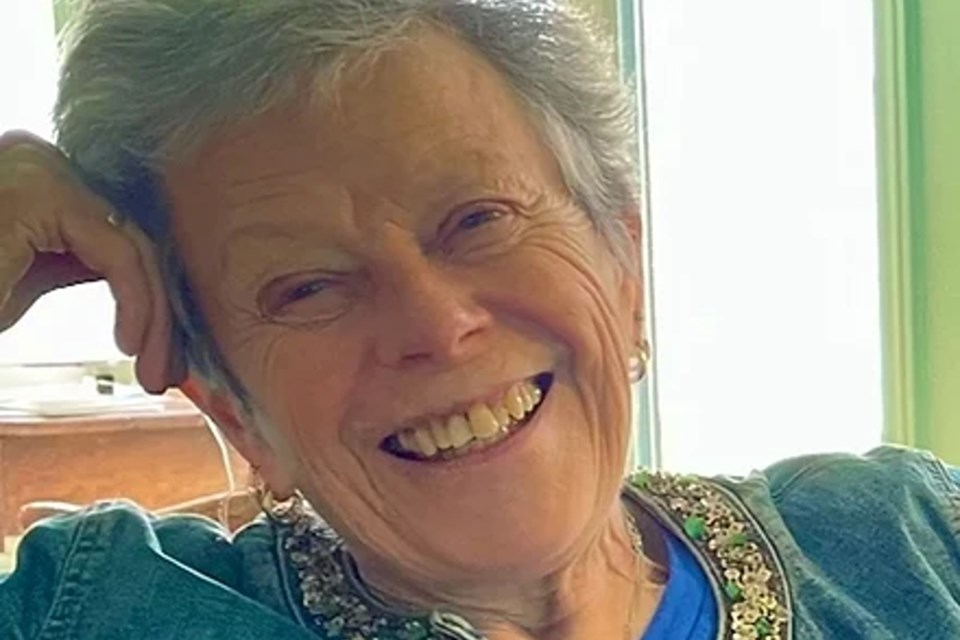“You’ve got to tell my story.” It was not a request.
It was July 2018, almost 18 months after Dr. Jean Marmoreo had first helped a person die. Yolanda, a scientific researcher who’d lived with a rare lung condition for 30 years, uttered these words to Dr. Jean, as she prefers to be known, in the last minutes of her life before her assisted death.
“When I actually went to provide for Yolanda, she looked me in the eye, and said ‘You are going to tell my story’,” recalls Marmoreo, a Toronto family physician of 50 years and a Member of the Order of Canada, in a recent interview with Village Media.
Shortlisted for the 2022 Writers’ Trust Balsillie Prize for Public Policy, Marmoreo’s best-selling book, The Last Doctor: Lessons in Living from the Front Lines of Medical Assistance in Dying, is the featured book for this year’s Celebrate Women event in Sudbury.
Marmoreo, who co-authored the book with journalist Johanna Schneller, is the guest author at the May 7 event.
In the book, Marmoreo shares the stories of eight of her patients who received medical assistance in dying (MAID). She and Schneller tell their stories with help from the patients’ family and friends.
“I picked the eight people in the story, because I really felt each of them had a lesson for me,” Marmoreo said. “More importantly, as it turned out, in the final product, it was a primer to describe how it might look for family members in each of these circumstances.”
As the book’s online description says, these are all very different and memorable patients, some aged, some suffering from degenerative conditions or with a terminal disease, some surrounded by supportive love, some quite alone.
They all asked her to end their suffering with dignity and on their own terms.
‘Family doctor should be their final doctor’
Explaining her reasoning for becoming one of the Canadian pioneers in MAID, Marmoreo writes, “I firmly believe that a person’s family doctor should be their final doctor.”
“After nearly five decades in family practice in Toronto, I had experienced the value of a long, thorough, personal relationship between a patient and their family doctor,” she elaborates.
“My ideal was cradle-to-grave care: to begin with a patient in young adulthood and stay with them until the end.”
When Marmoreo learned in 2015 that medical assistance in dying was coming to Canada, she became resolute — she had long believed in assisted death, and now she could close out her career by helping people end their lives that way.
“I wanted to do it forever,” she said. “You know, that's because I’d been 42 years in practice. I know what happens,” describing how some patients would withdraw from her at the end of life.
They were afraid to tell Dr. Jean they were planning to die by suicide because it might expose her to criminal repercussions.
In June 2016, parliament passed federal legislation that allows eligible adults in Canada to request MAID.
Initially very stringent in its criteria, MAID legislation was amended in 2021 following a Quebec court ruling that it was unconstitutional to require that a person’s death be reasonably foreseeable to receive an assisted death.
While today graduates in family practice can take a nine-month specialty program in palliative care, Marmoreo decided to prepare herself for MAID by shadowing the best practitioners she could find.
Yes, it was her ideal that family doctors provide MAID to their patients, but in the early years of assisted dying in Canada, there weren’t many who were doing it.
And, as Marmoreo says in her book, it takes a toll on practitioners carrying that burden, including herself, describing a near-breakdown she once had at a conference for MAID providers.
Seven years into MAID in Canada, more than 40,000 people have died this way, and you’re not going to find many people who haven’t heard of it. Marmoreo said about 80 per cent of the population has always been in favour of MAID.
But “if proper palliative care is being provided, and people have the option to kind of go that route, I think in fact, 95 per cent of people will do that. Only five per cent of the population is ever going to ask for assisted death.”
Mental illness and advanced requests
While currently excluded, there are now plans to extend the criteria for MAID in Canada to those whose only medical condition is a mental illness, but this has been punted down the road, most recently until March 17, 2027.
The government of Canada website said the extension allows provinces and territories more time to prepare their health-care systems to assess and provide MAID in this situation.
Marmoreo figures the extension also serves to push the issue until after the next federal election. The problem with providing MAID to this population is that it's split our psychiatric community “right down the middle in Canada,” she said.
“I don't think anybody's ever going to be flippant about a mental disorder,” Marmoreo said, but adds that these cases require careful, team-based assessments before MAID is granted.
The other biggie, Marmoreo said, are advanced requests for MAID. She said there are some circumstances where those who wish to receive MAID can sign a contract with their providers for an assisted death on a certain date.
But this is only under specific circumstances, and does not apply, for example, to someone who is slowly losing capacity due to dementia and has made an advance request long in advance for MAID.
The province of Quebec, has, however, passed legislation last year to allow MAID in in the early stages of serious degenerative illnesses such as Alzheimer’s, and has requested a federal criminal code amendment so it can put it into effect, but Ottawa has not yet granted its request.

